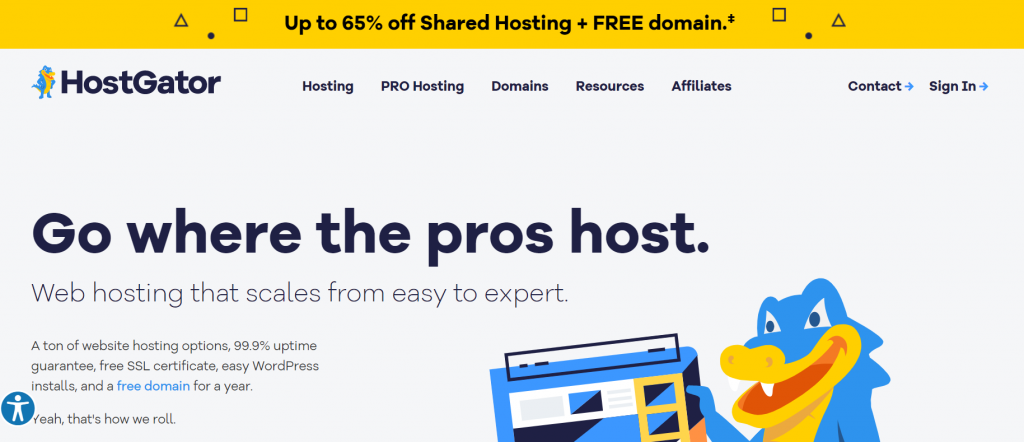Domain names are important for a number of reasons. For one, they’re how people find your website. But did you know that your domain name can also affect your SEO? In this blog post, we’ll explore how domain name registration and hosting affects your SEO. We’ll also give you some tips on choosing a domain name that will help you rank higher in search engines. So if you’ve been wondering how to choose a domain name that will benefit your SEO efforts, read on!
Domain name registration
Domain name registration is the first step in getting a website online. The domain name is your website’s address on the internet. It’s how people find your site. For example, if your domain name is mysite.com, people can find your website by typing www.mysite.com into their web browser.
Your domain name also affects your SEO, or search engine optimization. That’s because the domain name is one of the ways that search engines like Google understand what your website is about. So it’s important to choose a good, keyword-rich domain name that accurately reflects the content of your site.
There are a few things to keep in mind when choosing a domain name:
1) Keep it short and easy to remember. Long, complicated domain names are hard for people to type and hard for search engines to index properly.
2) Use keywords that describe your business or website. This will help people find your site when they’re searching for relevant terms online.
3) Avoid using hyphens or other punctuation marks in your domain name. These can be confusing and make it harder for people to find your site.
4) Make sure the extension (like .com or .net) makes sense for your business. If you’re targeting a local audience, consider using a country-specific extension like .ca or .co.uk.
Once you’ve chosen a good domain name, you’ll need to register it
Domain name hosting
Domain name hosting is one of the most important factors in SEO. A domain name is the web address that people use to find your website. It is important to choose a good domain name that is relevant to your business or website, as this will help people find you more easily online.
There are two main types of domain names: top-level domains (TLDs) and country code top-level domains (ccTLDs). TLDs are the most common type of domain, and include .com, .net, and .org. Country code top-level domains are specific to a country, and include .us for the United States, .uk for the United Kingdom, and .ca for Canada.
When choosing a domain name, it is important to consider both SEO and branding. A good domain name should be short, easy to remember, and relevant to your business or website. It should also be a TLD, as these are more likely to rank higher in search engines. However, if you have an international audience, you may want to consider a ccTLD as well.
Once you have chosen a domain name, you need to register it with a registrar. This is the company that will manage your domain name and provide you with web hosting services. There are many different registrars to choose from, but it is important to select one that is reputable and has good customer service.
After registering your domain name,
SEO and domain names
Domain names are a critical part of SEO and can impact your search ranking in a number of ways. Here’s what you need to know about how domain name registration and hosting affects your SEO:
1. The age of your domain name matters. Older domains tend to rank higher in search results than newer domains. If you can, try to register your domain name for multiple years so that it appears more established to search engines.
2. The extension of your domain name also matters. .com domains are generally given more weight than other extensions like .net or .info. However, if your business is specific to a certain country, then using a country-code top-level domain (ccTLD) can actually help your SEO. For example, if you’re targeting businesses in the United Kingdom, then registering a .co.uk domain would be beneficial.
3. Your domain name should be relevant to your business and keywords. Including relevant keywords in your domain name can help you rank higher for those terms in search results. For example, if you sell “blue widgets”, then including “bluewidgets” in your domain name could help you rank higher for that keyword phrase.
4. How you register your domain name matters. When you register a domain name, you have the option to keep your personal information private or publically accessible through the WHOIS database. If you want to keep your personal information.
How to choose a domain name for your website
Your domain name is your website’s address on the internet. It’s how people find you online, and it’s an important part of your SEO.
Choosing a domain name can be tricky- you want something that’s easy to remember, but also relevant to your business. Here are a few tips to help you choose the perfect domain name for your website:
1. Keep it short and simple. A shorter domain name is easier for people to remember and type into their browser.
2. Make it relevant to your business. A relevant domain name will help people find your website more easily online.
3. Use keywords in your domain name. Including keywords in your domain name can help with your website’s search engine optimization (SEO).
4. Avoid using hyphens or numbers in your domain name. These can be confusing for people and make it harder for them to find your website online.
5. Check if the domain name is available before registering it. You don’t want to choose a domain name that someone else is already using!
With these tips in mind, you should be well on your way to choosing the perfect domain name for your website!
Our Recommendation: Hostgator
If you’re looking for a reliable, affordable web host, we recommend Hostgator. Their plans start at just $2.75/month, and they offer a 45-day money-back guarantee. Plus, their customer service is excellent – you can contact them 24/7 via phone or live chat.
Hostgator has been in business since 2002, and they’re one of the world’s largest web hosting companies. They offer a wide range of features, including unlimited storage and bandwidth, a free domain name, and free site builder software. Plus, their uptime is guaranteed at 99.9%.
When it comes to SEO, Hostgator offers some great features to help you rank higher in search engines. For example, they offer free SSL certificates and WordPress hosting plans that come with pre-installed WordPress plugins to help you with your SEO efforts.








